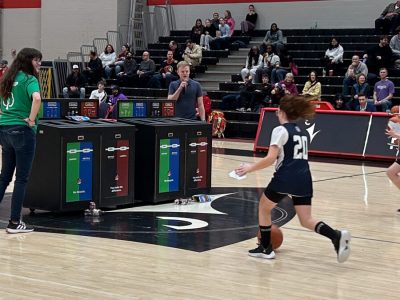Earlier this week was World Oceans Day, a global day of celebrating the ocean and reflecting the ways we can protect it. We are all connected to the ocean in some way. Carleton University is surrounded by water and green spaces, serving as an important reminder to be an environmental steward and to responsibly manage our ecosystems.
Did you know?
- Every year, 13 million tonnes of plastic enters the sea.
- The Great Pacific Garbage Patch, the largest accumulation of ocean plastic in the world, is an estimated 1.6 million square km, an area twice the size of Texas.
- Plastic debris is the cause of death of one million seabirds and 100,000 marine mammals every year.
- It takes 3 litres of water to make a 1-litre plastic bottle.
- Plastic bags are used for an average of 12 minutes, but a single plastic bag has a life expectancy of up to 1,000 years.
- At this pace, we will end up with more plastic than fish by the year 2050.
Source: UNEP
How to get started…
- Refuse single-use plastics. Ask for sustainable alternatives to single-use plastics.
- Reduce your plastic footprint by eliminating the number of plastic products used.
- Re-use. If you can’t use an alternative to plastic, re-use it when possible and dispose of it responsibly.
- Recycle. If you must purchase plastic, opt for those that are recyclable to reduce items going in the landfill.
- Educate yourself why the issue of plastic pollution is so important. Find educational resources (books, movies, lectures) on ocean pollution.
- Participate in a community clean-up to help protect local waterways, when safe to do so.
- Support organizations addressing plastic pollution prevention.
- Avoid products using microbeads, often identified on labels as polyethylene, polypropylene, polylactic acid (PLA), polystyrene or polyethylene terephthalate. Microbeads are tiny plastic particles that end up polluting water streams which are highly damaging to the natural environment and wildlife.
- Put pressure on manufacturers. Urge companies you buy to reduce their plastic consumption. Let your voice be heard. Write a letter, an email, support sustainable businesses!
- Sign the online petition to call upon world leaders to agree to protect 30% of our ocean by 2030 at www.worldoceansday.org/take-action/petition/
In conclusion, stopping plastic at the source is our best solution.
Curious to learn more?
Here is a list of organizations addressing ocean conservation: World Wildlife Fund, Oceana, Greenpeace, Ocean Conservation, Nature Conservancy, and Plastic Oceans Canada.
Here are a few educational resources to help get started: A Plastic Ocean, BBC Blue Planet, The Sea Around Us (Rachel Carson), and Cradle to cradle: remaking the way we make things (William McDonough and Michael Braungart).
Tuesday, June 9, 2020 in News, Sustainability Tip
Share: Twitter, Facebook



